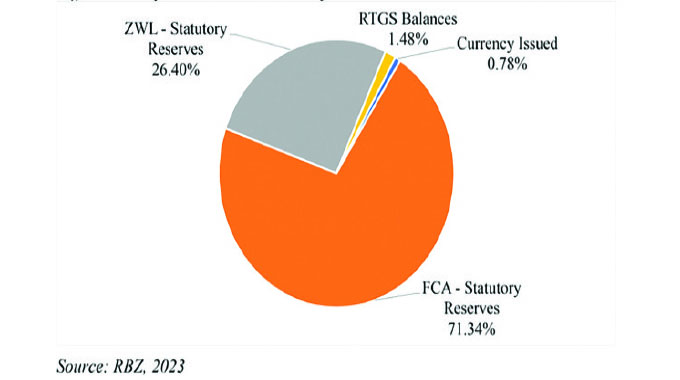ZPC, Intratrek dispute rages on

Business Reporter
INTRATREK Zimbabwe, which is entangled in contractual dispute with Zimbabwe Power Company (ZPC) over the Gwanda solar plant, has filed submissions to the High Court seeking an order compelling ZPC to allow it to fulfil terms of the project agreement or be paid $25 million damages for breach of contract.
This comes after a dispute arose regarding fulfilment of terms of the contract, including stage-based payments due for part of work it has done, with the State power utility, however, claiming Intratrek failed to implement the 100 megawatt Gwanda solar project within agreed timeframes.
Intratrek disputes this.
The firm claims it had fictionally fulfilled terms of the contract and that challenges that delayed project implementation as originally envisaged, were caused by ZPC, which also allegedly frustrated alternative efforts to expedite the power project.
The company, which partnered multi-billion dollar asset firm and Shanghai Stock Exchange listed CHiNT Electric for the Gwanda project, submitted that it was clear from the outset ZPC had no intention to implement the contract in good faith, as demonstrated by its failure to prove what it had done to facilitate project implementation.
Apart from refusing to make further payments for the works Intratrek has done on the Gwanda solar project site, other than advance payments it made earlier, ZPC has allegedly threatened to cancel the contract citing delayed implementation.
In its heads of arguments filed before the High Court last month under case 8159 /2018, Intratrek said ZPC was now seeking to set up a breach of contract scenario between the parties to avoid making payments, which it said were now due to it.
Intratrek wants ZPC held to its bargain and perform its part or alternatively pay damages ($25m). The matter is likely to be set for hearing on November 16, 2018.
Before the dispute, the parties signed an addendum to the main contract in September 2017 for ZPC to pay sub-contractors of Intratrek directly in an effort to pace up the project, a sub-pact the former allegedly violated and further threatened to cancel the whole contract alleging contract violation through project delays.
In the heads of argument submitted to the High Court, top Harare lawyer Advocate Lewis Uriri said in the Government procurement context, the remedy of specific performance was available against both the organ of State and the contractor.
He said that a court of law could order the organ of State to pay the contractor, not interfere with the work of the contractor or delay the contractor in the performance of its work.
“This accordingly is a motion for specific performance of the agreement between the parties. In the alternative, the applicant seeks damages that were within reasonable contemplation of the parties at the time of contracting and the quantum of which is common cause or has not been seriously disputed. The amounts to be paid in either case are largely contractual sums that are easily established on papers,” Intratrek said.
“The breach is self-evident on the papers. The applicant is entitled to hold the respondent to contract, alternatively to seek damages. This is settled and trite position of the law.”
However, apart from claims of alleged breach of contract by either part, ZPC has also challenged the lawsuit by Intratrek at the High Court saying the case brought against it should have been brought to court by way of action instead of notice of motion.
But Intratrek shot down the claims as baseless and designed to delay resolution of the case.
“The objection is without merit. It is cosmetic. It is predicated on a lack of appreciation of the fact that on the papers the facta probanda is either common cause or cannot be seriously disputed.”
Intratrek argued that there were no material disputes of fact incapable of resolution on the papers by the court, adding the matter advanced and pleaded by it was clear.
“In view of the foregoing, it is submitted that there is nothing that stops this court from deciding the present matter on papers. The respondent (ZPC) has not proved and cannot prove that there is material dispute of fact incapable of resolution on papers.
“Even if it were to be assumed that there are material disputes of fact, there is nothing that precludes this court from employing the robust approach in resolving the matter.”
Intratrek submitted that it had performed part of the pre-commencement works that entitled the company to payment, which payment was stage-based in terms of the contract.
“The parties are agreed as to the extent of performance reached by the applicant. More particularly the respondent never denies that the applicant submitted a report showing that it had performed 82 percent of the geotechnical survey.
ZPC does also not deny the fact that Intratrek had completed 33 percent of site fencing and that the contractor was due to be paid an amount of $120 333,34, although the whole job was valued at $181 277,58.
The contractor had also done part of ground clearance, which ought to be paid.
Intratrek also dismissed claims by ZPC that there were two contracts governing the agreement between the parties, arguing attempts to rely on provisions of the addendum of September 21, 2017 to vary terms of the original agreement was a misinterpretation of the contract, as the addendum only supplemented the original contract.
The company said reasons cited by ZPC for refusing to pay for works done at specific stages consisted of implausible facts, bald and uncreditworthy denials and untenable disputes of fact.
“It is not in dispute that the applicant’s (Intratrek) sub-contractors performed their obligations in terms of addendum number one. In particular, geo-technical survey and a final report were submitted to (ZPC) in or around July 2018.
“The respondent accepted the report and acknowledged its findings. In respect of ground clearance, at least 85 hectares of land was cleared and de-stubbed. The first phase of fencing was completed in terms of provisions of the amended schedule 11 to the EPC contract.
“It is not contested that upon presentation of the invoices by (Intratrek) for payment by respondent (ZPC), the respondent flatly refused to pay the same citing reasons not founded in the contract,” Intratrek said.
The firm said the foregoing showed that a case for specific performance was clearly made out, as ZPC could not prove material dispute of facts to deny the court from resolving the dispute between the parties.







Comments